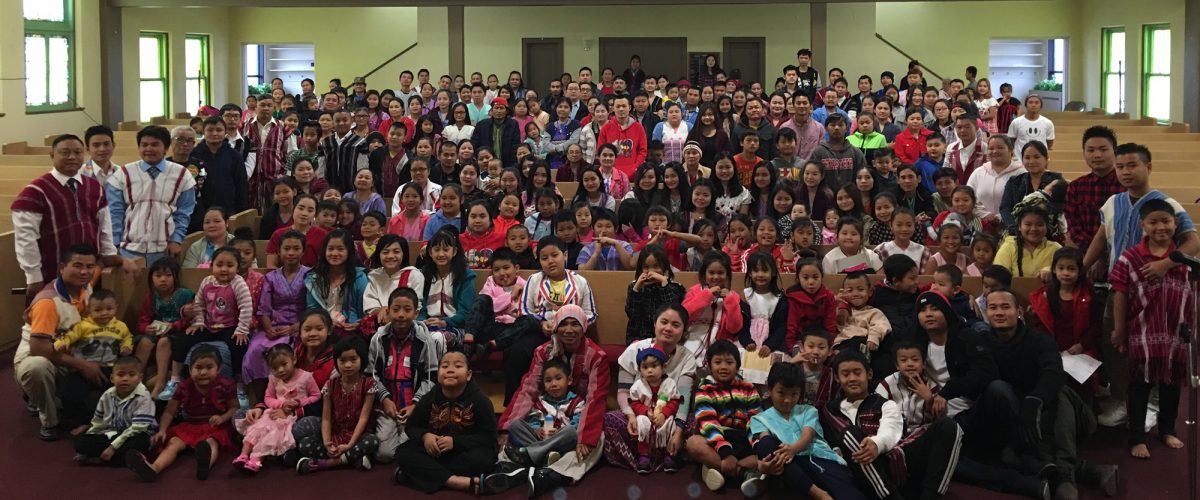Burmese refugee youth resettled in Texas exhibit amazing courage and resilience in negotiating American life and helping older relatives and community members overcome language and cultural barriers in the U.S., ethnographic researcher Diane Mitschke said during an April 28 lecture in Dallas.
“Resilience really is an incredible, incredible gift that these refugee children have in their possession, and being able to empower them to use that gift to thrive here once they’ve resettled is something we as a society need to learn more about and need to really commit to,” said Mitschke, an associate dean and professor in the University of Texas at Arlington School of Social Work and an expert on the health and mental well-being of refugee and vulnerable populations.

Diane Mitschke
Mitschke’s presentation to the UT Dallas Center for Children and Families covered the basics of refugee resettlement before focusing on her studies of the locally resettled Karen (pronounced ka-RIN), a Burmese ethnic group strongly represented in the DFW Metroplex. Her lecture also covered the social, medical and mental health challenges these and other refugee populations encounter in the U.S.
That source of strength emanates in part from the war they and their families — and tens of thousands of other ethnic minorities persecuted by the Burmese military junta — endured before fleeing safe havens in bordering countries, Mitschke said.
“For some of these teenagers and young adults, it’s not all traumatic memories. Some of them, particularly when they were young children in Burma, have these positive associations with Burma. Some of them are really struggling between trying to wrap their heads around Burma as a dangerous and terrible place, but also ‘this is my homeland and I have strong positive memories of this place.’ It’s important that we don’t just characterize the entire experience as traumatic, that there are pieces of resilience that are threaded through it.”
“These youth have this incredible inner strength and they have parents that support them and have sacrificed for them, and we see success over time.”
Ethnic identity is another source of encouragement for young Burmese refugees negotiating the new realities of life in the U.S., she added. “This says being Karen means that ‘my ancestors were able to overcome foreign rule and racial genocide. So yeah, we’re a strong people.’ These youth are successful by and large. These youth have this incredible inner strength and they have parents that support them and have sacrificed for them, and we see success over time. So, it’s a long trajectory.”
That journey includes adjusting to education in the U.S., Mitschke said. “Most of the children who come over here don’t know English. Their parents don’t know English. They arrive and they’re immediately placed into a school where English is the language that’s spoken. And so, they try to find their way. It presents a number of challenges early on in the resettlement process.”
Those difficulties include the social hostility many refugees encounter regardless of age, Mitchke said. “We experience a lot of threats toward newcomers in our country and in Texas, in particular. There’s a lot of resistance to newcomers to the United States who don’t speak English.”
Refugee youth and their families often face threats to their physical safety after being resettled in high-crime areas where rents are lower, she added. “Having escaped violence in their home country, having escaped violence in their refugee camps, they then are resettled here in America and are often victims of crime. Muggings, robberies and violence are commonplace in many of the resettled communities.”
Lack of employment or sustaining jobs, health insurance, transportation and access to familiar foods cause even more difficulties and stress for resettled refugees. And while Mitskhe and her husband run a clinic in East Dallas to address many of these needs, the challenges are exacerbated by the emotional and mental health disorders that often go undiagnosed and untreated, she said.
Psychological issues in refugee children can be worsened by the resettlement process itself.
“Observing their parents feeling helpless, not being able to provide for their children, not being able to navigate the system is something that contributes to poor mental health in refugee children,” Mitskhe said. “When parents underestimate the stress their children are experiencing and don’t acknowledge it, that can contribute to poor mental health outcomes.”
Also stressful for refugee youth is the leadership role many of them must assume at a young age to help bewildered parents through the language barrier and the acculturation process.
Youth “are quick learners,” she said. “Often, they’re very resilient and they learn English pretty quickly, certainly compared to their parents who are less adept at learning language quickly and are often focused on a sole goal of becoming economically self-sufficient. Children and adolescents very early on experience this role confusion, or a role reversal, where they are the ones that are adept at navigating all of the different systems that their parents are encountering.”


